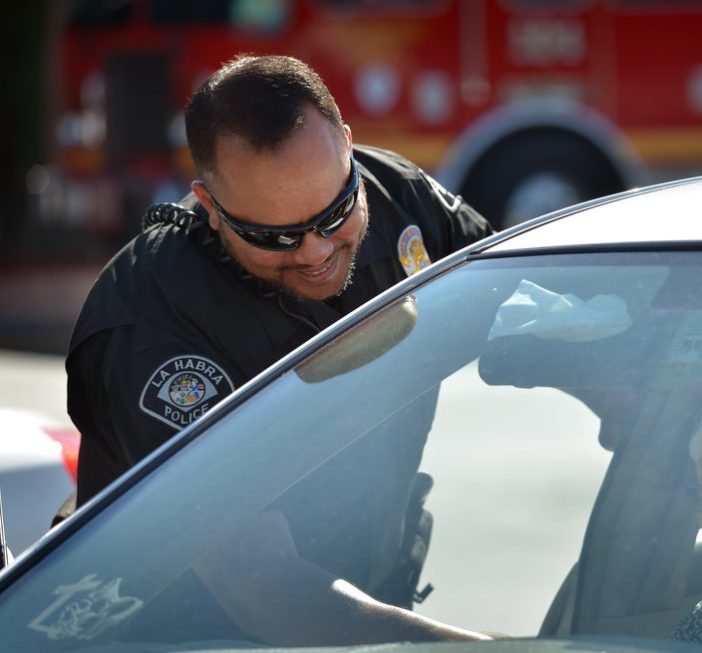Traffic officers see it all on the road: the best and worst behavior behind the wheel. And while some drivers might not love them — there’s no law about that — they help make us safer every time we’re in a car, riding a bike, or even walking down the sidewalk of a busy street.
But if you got the chance to ask a seasoned traffic officer about the rules of the road, or talk to them about what their job is like, what would you ask?
We’ll be asking the officers of the La Habra PD — traffic cops in a very commuter-heavy town — to answer questions about how to be better users of the road.
Question: How can you tell if someone is driving under the influence (DUI) before you pull them over?
Answer from Officer Sumner Bohee: Although I’m currently a motor officer, I spent the first several years of my career with La Habra Police as a graveyard patrol officer, working primarily on weekends. While working that shift, it was not uncommon to encounter my fair share of DUI drivers.
I have found that there are four common indicators that a driver could be under the influence: driving without headlights, speed — too fast or too slow, stopping too soon or too late, and swerving.
Any vehicle demonstrating these indicators would stand out from the rest of the traffic in the middle of the night. More than one of these indicators increased the likelihood of the driver being DUI.
Naturally, a driver could simply “forget” to turn on headlights during complete darkness, be a chronic speeder, or be using a cell phone causing swerving movements and/or stopping too late for a red light.
My goal was to conduct a traffic enforcement stop on such vehicles so that I could at least rule out DUI as the cause for these moving violations. An individual under the influence of drugs and/or alcohol can demonstrate signs of impairment in areas such as judgement, depth perception, memory, fine motor skills, reaction time, and the ability to multitask, which are all essential in operating a motor vehicle safely.
Whether a traffic stop resulted in a warning, citation, or arrest depended entirely upon the totality of circumstances for each stop.
Too many people are injured or killed by impaired drivers each year. Driving impaired is a choice may people unfortunately make. In a metropolitan area like Southern California, there are numerous options for a person to get home after they have been drinking. Driving themselves should never be the option taken.
Remember, Super Bowl Sunday is another time of the year when DUI accidents and arrest increase. As always, drive safely, wear your seatbelt, and please do not hesitate to call the police if you observe a possible DUI driver.
 Behind the Badge
Behind the Badge



